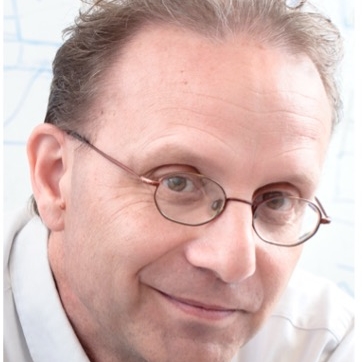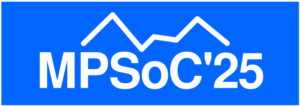
Edoardo Charbon
EPFL, Switzerland
The Hardware of Quantum Computing
Abstract
The core of a quantum computer is generally an array of qubits, quantum detectors and classical electronics for its control; it operates on the qubits with nanosecond latency and a very low noise. To achieve a reproducible and scalable architecture, we advocate the use of CMOS-compatible qubits and control all operating at deep-cryogenic temperatures. In this in-depth talk, we explore how a practical quantum computer could look like in the near future, starting from the basics of quantum computation to close with current trends in real-life quantum machines. The challenges of designing and operating complex systems will be outlined, along with preliminary results achieved in the control of quantum devices by ad hoc integrated circuits optimized to operate at low power in extreme conditions.
Biography
Edoardo Charbon (SM’00 F’17) received the Diploma from ETH Zurich, the M.S. from the University of California at San Diego, and the Ph.D. from the University of California at Berkeley in 1988, 1991, and 1995, respectively, all in electrical engineering and EECS. He has consulted with numerous organizations, including Bosch, X-Fab, Texas Instruments, Maxim, Sony, Agilent, and the Carlyle Group. He was with Cadence Design Systems from 1995 to 2000, where he was the Architect of the company’s initiative on information hiding for intellectual property protection. In 2000, he joined Canesta Inc., as the Chief Architect, where he led the development of wireless 3-D CMOS image sensors. Since 2002 he has been a member of the faculty of EPFL, where he is full professor. From 2008 to 2016 he was with Delft University of Technology’s as full professor and Chair of VLSI design. He has been the driving force behind the creation of deep-submicron CMOS SPAD technology, which is mass-produced since 2015 and is present in telemeters, proximity sensors, and medical diagnostics tools. Since 2014, he has pioneered the use of Cryo-CMOS technology for the control of quantum devices, especially qubits, to achieve scalable, fault-tolerant quantum computing. His interests span from 3-D vision, LiDAR, FLIM, FCS, NIROT to super-resolution microscopy, time-resolved Raman spectroscopy, and cryo-CMOS circuits and systems for quantum computing. He has authored or co-authored over 500 papers and two books, and he holds 30 patents. Dr. Charbon is the recipient of the 2023 IISS Pioneering Achievement Award, he is a distinguished visiting scholar of the W. M. Keck Institute for Space at Caltech, a fellow of the Kavli Institute of Nanoscience Delft, a distinguished lecturer of the IEEE Photonics Society, and a fellow of the IEEE.
If you wish to modify any information or update your photo, please contact Web Chair Arief Wicaksana.
